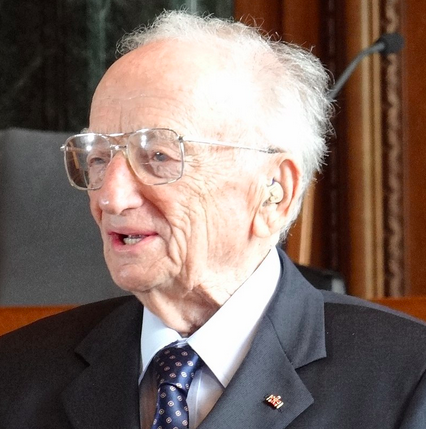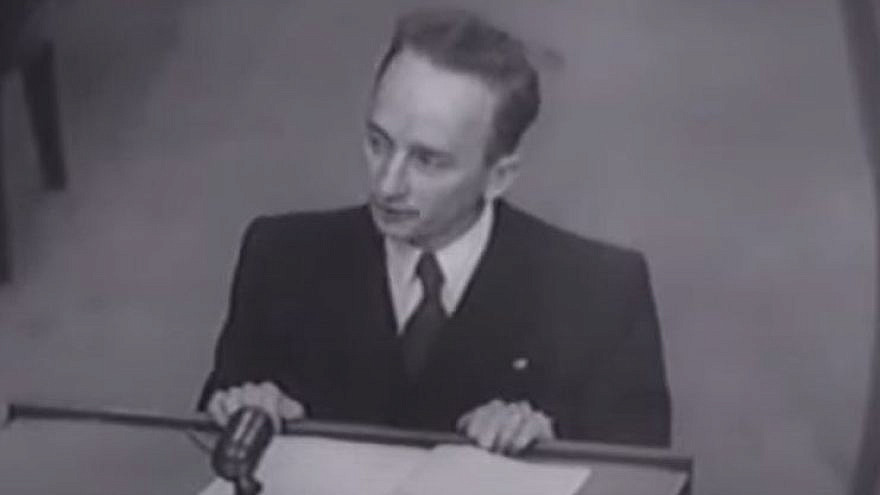Benjamin (“Ben”) Ferencz, the last surviving prosecutor from the Nuremberg trials, passed away on April 7 at the age of 103.
According to The New York Times, he died at an assisted-living facility in Boynton Beach, Fla.
Ferencz was put in charge of the Einsatzgruppen case, in which 22 Nazis, including six generals, organized and directed roving SS extermination squads that murdered 1 million people.
“All the defendants were convicted of war crimes and crimes against humanity. Fourteen were sentenced to death and two to life in prison. Only four executions were ultimately carried out, however, which was typical of the Nuremberg trials: convictions, heavy sentences and later commutations. Analysts said leniency arose because the new realities of the Cold War with the Soviet Union meant that the Western powers needed Germany politically,” the Times reported.

During World War II, Ferencz served in the U.S. Army and helped collect evidence of Nazi war crimes. Following the war, he was honorably discharged with the rank of sergeant of infantry and was awarded five battle stars for his service. After the war, he fought for the restitution of property seized by the Nazis, according to the report.
The United States Holocaust Memorial Museum posted to Twitter: “Today, the world lost a leader in the quest for justice for victims of genocide and related crimes. We mourn the death of Ben Ferencz—the last Nuremberg war crimes prosecutor. At age 27, with no prior trial experience, he secured guilty verdicts against 22 Nazis.”
Today the world lost a leader in the quest for justice for victims of genocide and related crimes. We mourn the death of Ben Ferencz—the last Nuremberg war crimes prosecutor. At age 27, with no prior trial experience, he secured guilty verdicts against 22 Nazis.
— US Holocaust Museum (@HolocaustMuseum) April 8, 2023
“Ben Ferencz was a giant,” said World Jewish Congress general counsel and associate executive vice president Menachem Rosensaft. “He devoted himself to the very end of his long and distinguished career to making sure that the lessons of Nuremberg would become engrained in both international law and the consciousness of society as a whole. He was also a fierce and tireless champion of providing at least a modicum of justice to Holocaust survivors.”
An Army corporal, Ferencz was sent to liberated concentration camps by Gen. George S. Patton because he had researched war crimes for a professor. He became the youngest prosecutor at Nuremberg.
“Nuremberg taught me that creating a world of tolerance and compassion would be a long and arduous task,” he said. “And I also learned that if we did not devote ourselves to developing effective world law, the same cruel mentality that made the Holocaust possible might one day destroy the entire human race.”
Ferencz would go on to author nine books and numerous articles. Born in Transylvania, he spoke French, Spanish, German, Hungarian and Yiddish.
In December, he was awarded the Congressional Gold Medal.


























